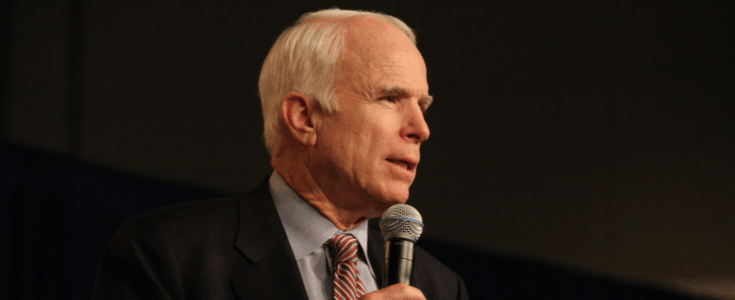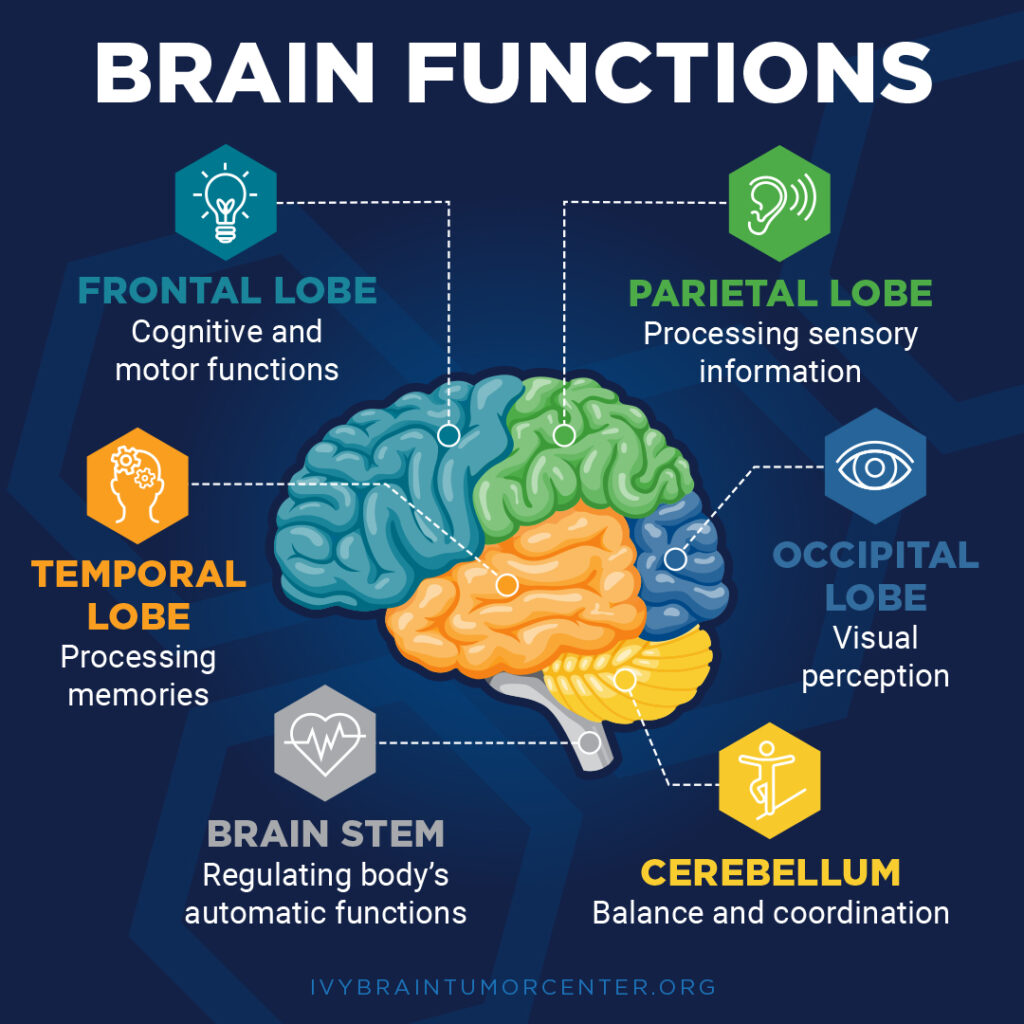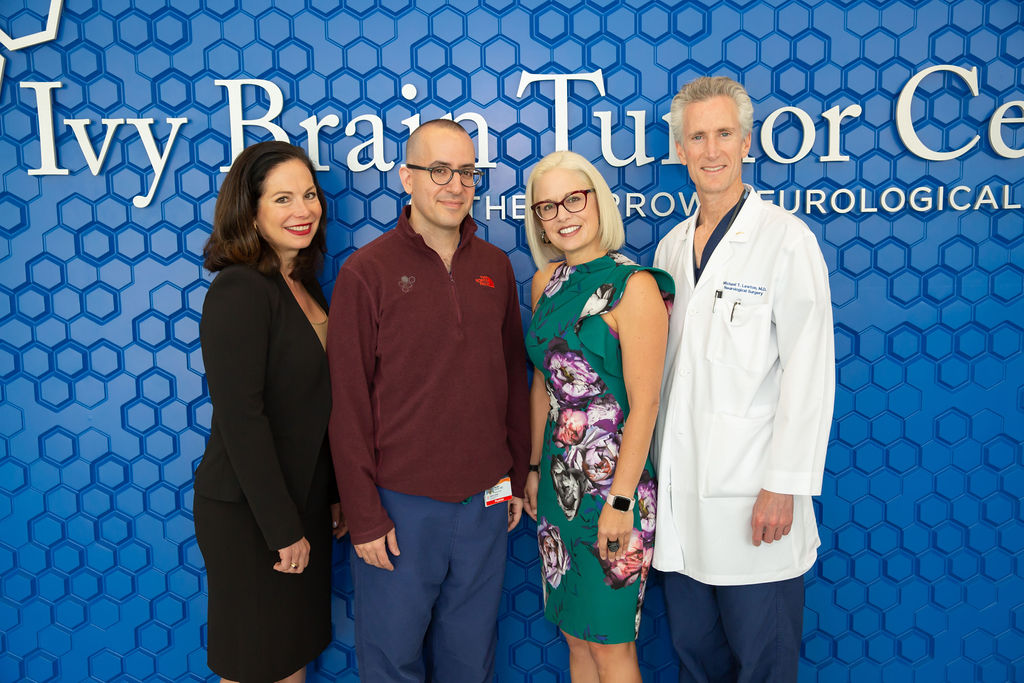
Ivy Blog
In Arizona, The Fight Against Brain Cancer is Personal
- August 25, 2024
- Ivy Center
- Posted in Glioblastoma

Today marks six years since the passing of Senator John McCain from glioblastoma, the most deadly and treatment-resistant form of brain cancer. McCain’s resilient and optimistic spirit was the hallmark of his public image. The country watched in grief as his health deteriorated at a rapid pace. Even with access to the best healthcare in the world, the senator lost his battle with the disease in just over a year after his diagnosis.
McCain’s passing shook the nation, but it wasn’t the first time glioblastoma struck a prominent political figure. Exactly nine years earlier to the day, the disease took the life of Senator Edward M. Kennedy. In 2015 Joseph “Beau” Biden III, son of current president Joe Biden, lost his battle with glioblastoma at the young age of 46.
Glioblastoma: A Disease that Doesn’t Discriminate
Due to the complexity and unique nature of glioblastoma, little progress has been made in identifying new and effective glioma treatment options. Unlike other cancers such as breast or lung, glioblastomas are extremely genetically heterogeneous. This means every tumor from patient to patient is different and as a consequence, treatment for those tumors is different for each patient.

The tumor’s location in the brain is critical. A brain tumor can impact a patient in many ways, including speech, memory, cognition and mobility. The microscopic cells of glioblastoma brain tumors make it nearly impossible to remove completely. Clinicians are up against the clock facing a disease with a median 15-month survival rate.
So how are researchers tackling a disease with more than 14,000 new cases and an estimated 10,000 deaths in the U.S. each year? The answer, much like the disease itself, is complex, but researchers from Senator McCain’s home state of Arizona are ready to take on the challenge.
Arizona’s Fight to Defeat Glioblastoma
Long before Senator McCain’s passing, Arizona had been at the forefront of brain cancer research. Located in the heart of Phoenix, the nationally recognized Barrow Neurological Institute is the highest-volume operative brain tumor center in the United States. The Ivy Foundation in Scottsdale is the largest privately funded brain cancer research foundation in North America, having dedicated over $150 million since 2005. Through the Ivy Brain Tumor Center at Barrow Neurological Institute, the Phase 0 clinical trials program was developed to treat aggressive brain tumors, including glioblastoma.
The Ivy Center’s Phase 0 clinical trials program is the largest of its kind in the world and enables personalized care in a fraction of the time and cost associated with traditional drug development. Unlike conventional clinical trials focusing on single drugs, this accelerated trials program tests therapeutic combinations matched to the genetic composition of individual patients’ tumors. The goal of the Ivy Phase 0 clinical trials is to challenge the status quo and address the shortcomings in current research to give brain tumor patients more effective treatment options and a longer life expectancy.
While Senator McCain’s battle with glioblastoma drew national attention to this rare disease, Arizona felt his loss deeply. Local officials took the opportunity to recognize the groundbreaking brain cancer research happening right in their backyard.
Raising Awareness for Glioblastoma

In 2019, U.S. Senators Martha McSally and Kyrsten Sinema of Arizona toured the Ivy Brain Tumor Center to learn about the unconventional method researchers are taking to treat aggressive brain tumors. Despite party differences, they both agreed that more needs to be done to bring awareness to glioblastoma and accelerate research. Shortly after each of their visits, the Arizona senators joined forces with other prominent senate members to honor the late Senator McCain and unanimously passed a bi-partisan resolution designating July 17, 2019, as the inaugural Glioblastoma Awareness Day (GBM Day).
Observed as a day to honor those who have been impacted by the disease, the initiative also supports efforts to develop better treatment options that will improve patients’ long-term prognosis. On July 17, 2024, the sixth annual Glioblastoma Awareness Day took place with advocates, researchers, patients and caregivers coming together to shine a light on this disease. The successful endeavor demonstrated the power of uniting forces to raise awareness for one of the deadliest diseases known to man.
On GBM Day 2024, the Ivy Brain Tumor Center announced that the first patient had been dosed in a pivotal Phase 3 study testing a promising new drug against the standard of care treatment. The Gliofocus Study is a randomized, controlled Phase 3 clinical trial that will enroll 450 glioblastoma patients at more than 120 sites across the world. Successful results of the study are intended to prove that this drug extends the lives of these patients and should become the new standard of care.
Honoring Those We’ve Lost Through Advancements In Brain Tumor Research
As people in the country reflect today on the passing of Senator John McCain, a beloved figurehead who embodied the strength and determination of the human spirit, many continue to suffer a similar and devastating fate due to glioblastoma. With researchers racing against the clock to find a cure and initiating new and inventive approaches to treat patients with brain cancer, a breakthrough feels closer than ever. Increased awareness and support of research development for new treatment options help patients and their loved ones find hope and perseverance to overcome this devastating disease.
In the words of the late senator himself, “Nothing in life is more liberating than to fight for a cause larger than yourself, something that encompasses you but is not defined by your existence alone.”
Andy McCain, Senator McCain’s son and an Ivy Center board member, reflects on his father’s memory and the Ivy Center’s efforts to transform care for patients facing similar battles.
To find out how you can support brain cancer research in honor of Senator McCain or a loved one, visit the Barrow Neurological Foundation’s donate page.

